The Adventures of Sir Lancelot the Great (6 page)
Read The Adventures of Sir Lancelot the Great Online
Authors: Gerald Morris
Sir Lancelot nodded in greeting. "And I'm Sir ... er ... I'm Lancelot."
Brastias said, "Lancelot? What an interesting name. I don't think I've ever heard that one before."
Sir Lancelot smiled wider. "Really? How wonderful! You've lived here long?"
"Twenty winters now, ever since I gave up being a knight."
"You used to be a knight?"
"Yes," replied Brastias. "But I didn't like it, so I came here to the deepest forest in the land, found a clearing, and built a cabin. I live a quiet life here, eating what the forest provides."
Sir Lancelot sighed thoughtfully. "That sounds nice. But what do you do all day?"
Brastias stroked his beard. "Well," he said, "I take naps every afternoon."
Sir Lancelot's eyes gleamed. "Are there any other clearings hereabouts?"
The Poisoned Pear
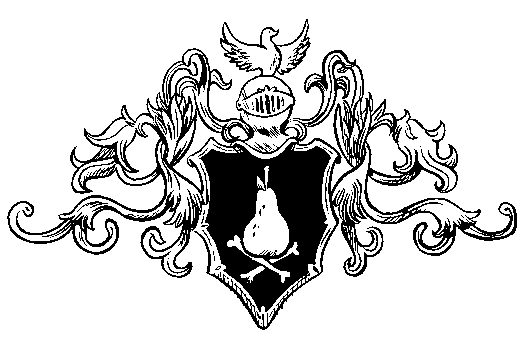
While Sir Lancelot made a new life for himself, trouble came to Camelot. There was one knight at Camelot who did not love King Arthur. His name was Sir Mador de la Porte. Sir Mador's brother had been a recreant knight, one whom King Arthur had banished from England, and although Sir Mador smiled and outwardly made himself agreeable, all his inward thoughts were of revenge.
Sir Mador had woven many plans, but he wanted his vengeance to be perfect. He had thought of ways to kill the king, but that was not enough for him. He didn't want the king to die; he wanted the king to suffer. Sir Mador decided to kill Queen Guinevere instead.
So it happened that about a year after Sir Lancelot retired from the Round Table, Sir Mador took action. During the bustle of preparations for a feast, he managed to slip a poisoned pear into the bowl of fruit that Queen Guinevere always kept at her place. But that night the queen was not hungry and only picked at her food. She ate so little that a young knight named Sir Patrise, once he had finished his own meal, asked if she were feeling well. The queen smiled at him and said, "I am just not hungry this evening. But don't let me slow you down, Sir Patrise. Here, have a pear."
That evening, Sir Patrise died, and all the knights and ladies of Camelot mournedâall except one. Sir Mador was delighted. This was even better than his original plan. He went to work. First he recovered the core of the pear. Then, for two nights, he shut himself up, reading books of old laws. On the third day, Sir Mador presented himself to the king and queen in the throne room.
"O King!" announced Sir Mador, "I bring you grave news. I have discovered that poor Sir Patrise's death was no accident. He was poisoned!"
"Poisoned?" exclaimed King Arthur. "But, whoâ?"
"The poison was in this pear," said Sir Mador, producing the core. "To discover the murderer, we must find who gave this to him to eat."
Queen Guinevere gasped. "But ... but
I
gave Sir Patrise that pear!"
Sir Mador drew himself up and declared sternly, "Then Queen Guinevere, I charge you with murder! And because no judge in England
would dare rule against the queen, I claim my right as your accuser to call for a trial by combat!"
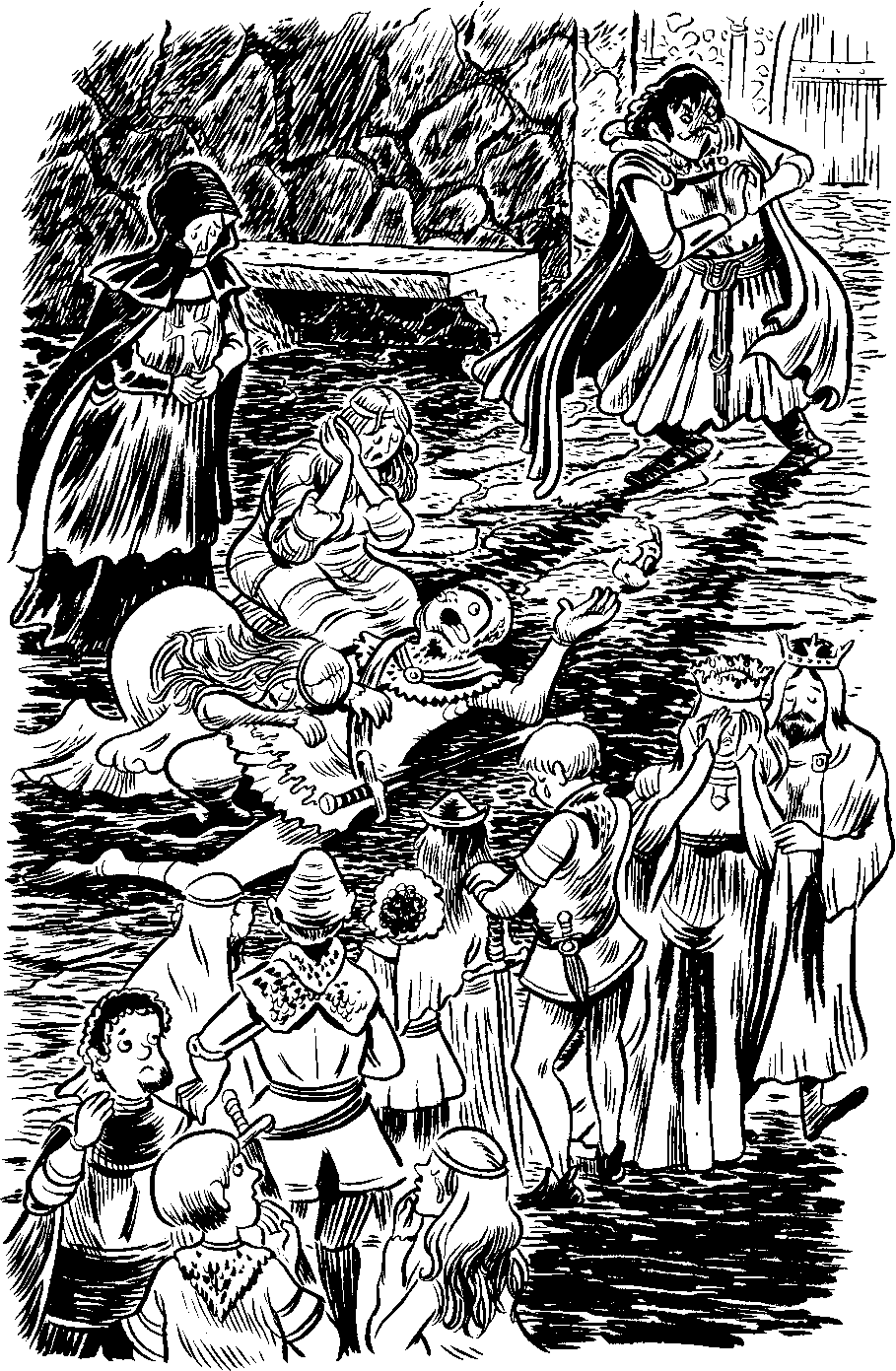
All the court buzzed with astonishment, and a murmur went up. "A trial by combat!"
Now, the trial by combat was an ancient custom in old England, almost forgotten in King Arthur's time. In this custom, when a person was accused of a crime, one knight took the side of the accused person and fought against the accuser to decide the case. The idea was that the truth would always prevail, but what generally happened was that the side that had the strongest knight prevailed.
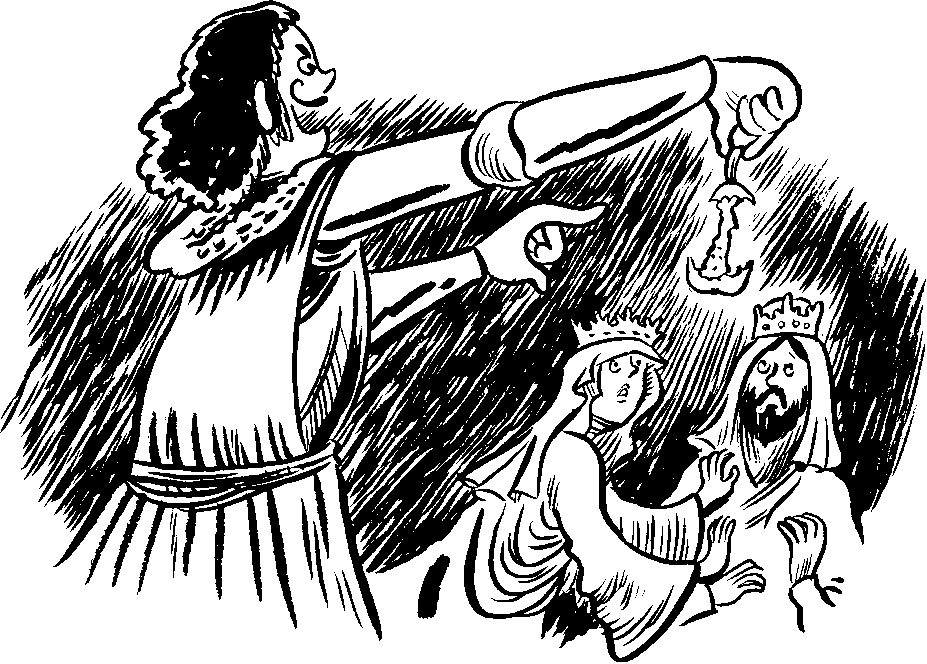
"But we haven't used the trial by combat in years," protested King Arthur.
"It is still the law of the land, is it not? I will prove Queen Guinevere's guilt with my own sword!"
As one, all of King Arthur's knights rose to their feet, each demanding the right to defend the queen, but Sir Mador held up his hand.
"Wait!" he said, pulling a roll of parchment from his tunic. "This is the law of the trial by combat, and it clearly states that when the accused person is a king or queen, then the defender must come from outside the court! None of the knights of the Round Table may take the queen's part! It is the law!"
The court lapsed into a stunned silence.
Sir Mador smiled evilly. "By law, you have one week to find a defender. If none appears, then the queen will be declared guilty, and you, O King, must order your own wife's execution." Turning, he strode triumphantly from the court.
***
"Can't you just change the law?" wearily asked Sir Bedivere, one of King Arthur's advisors. The king and his council had spent the whole night searching through law books, but they could find no way around Sir Mador's demand.
"How can I claim to rule England with justice if I change the laws just to suit myself?" replied the king.
"I still don't understand why none of your own knights can fight for her," muttered Sir Gawain.
"Because if that were allowed," King Arthur explained, "then a king could do whatever he wanted. If anyone complained, he could just have his strongest knight call for a trial by combat and kill off his oppositionâand it would all be legal. No, the law must be kept. We just have to find a champion to fight for the queen!"
"But where?" asked Sir Bedivere. "All the knights who love you are prohibited by law from defending her. The only knights who are allowed to take her part are recreant knights who hate you."
The king put his head in his hands. "I know," he said sadly. "Kay? What do you think?"
There was no answer. King Arthur raised his head and looked around the council room. Sir Kay was gone.
The Oddly Made Knight
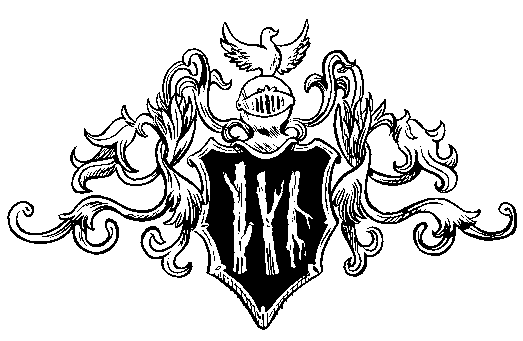
The day of the trial arrived, and although all the knights of the Round Table had scoured the country for a champion to fight for the queen, all had failed. As the law required, Queen Guinevere stood in an open field, bound by ropes, while her accuser, Sir Mador, waited in full armor for a challenger.
When no knight arrived, Sir Mador turned triumphantly to the king. "Does no one defend
Queen Guinevere of my charges? Then, by law, she must be declared guilty of murdering poor Sir Patrise and sentenced to death! You must pronounce sentence on your own queen now!" Sir Mador almost cackled with glee.
"Wait!" called a voice. The king and his court turned hopefully toward the sound.
From the woods at the edge of the field stepped the strangest-looking figure any had ever seen. It was a man, but he was wearing what looked like a garment of green twigs woven together and held in place with strips of bark. Leaves and branches bristled out like the quills of a large hedgehog. Over his face, the man wore a deerskin hood with holes cut in it for eyes, and from beneath the hood a bushy beard protruded. In the man's hand was a stout wooden staff.
"What ... er, I mean,
who
are you?" asked King Arthur.
"I am a knight who has come to defend Queen
Guinevere," the man replied.
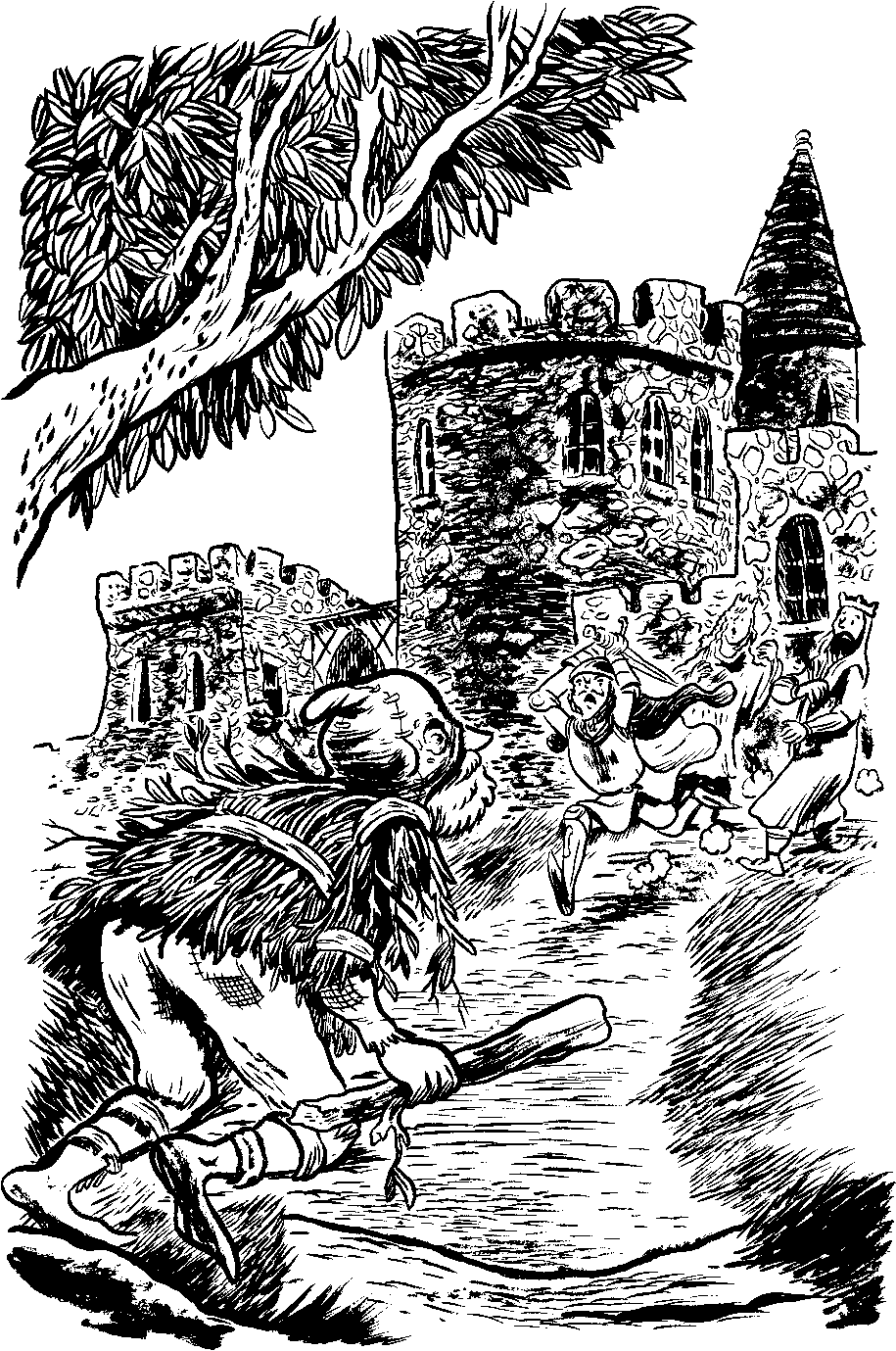
"You, a knight?" scoffed Sir Mador. "You look more like furniture!"
"You must forgive my armor," said the oddly made knight. "I didn't have any chain mail."
"And do you propose to fight me with a stick?"
"It was all that was handy. I've mislaid my sword, you see."
Sir Mador sneered at his twiggy opponent. "I find you insulting, oaf. I don't know what sort of low hovel you've crawled out of, but go back there at once before you annoy me."
"But I've come to fight you," said the oddly made knight.
"I don't lower myself to fight with peasants," said Sir Mador with a sneer.
"I spent hours putting this armor together. You think it was easy?"
"Go away, dolt, and do not meddle in the affairs of your betters!"
"You refuse to fight me?"
"I would throw you in a duck pond, but in that outfit you'd just float!"
"You refuse to fight me?" repeated the oddly made knight.
"Are you deaf as well as foolish?" snapped Sir Mador. "Yes! I refuse to fight you!"
The stranger turned to the king. "Sire, does not the law of the trial by combat state that if the accuser refuses to fight, then the accused must be set free?"
"So it does!" exclaimed King Arthur, leaping to his feet. "I hereby declare Queen Guinevere innocent! Release her at once!"
Stunned, Sir Mador stood still for a moment, then let out a bellow of rage. Drawing his sword, he charged the oddly made knight who had so neatly destroyed all his carefully made plans. The stranger sidestepped Sir Mador's flashing sword
and, raising his wooden staff, struck Sir Mador in the head. He struck him very hard. The sound of the staff against Sir Mador's helmet was like the sound of an ax hitting a tree. Sir Mador's feet flew out from beneath him, and he landed on his back and did not move.
"And, Sire?" said the oddly made knight. "Does not the law say that a man who makes a false accusation must be banished from the land forever?"
"So it does," replied the king. "I hereby banish Sir Mador from England." Then he hesitated and added, "Starting as soon as he wakes up. I thank you, O knight, whoever you are."
The stranger removed the hood from his head. King Arthur stared for a long moment at the bushy-bearded face, then smiled. "Lancelot," he said.